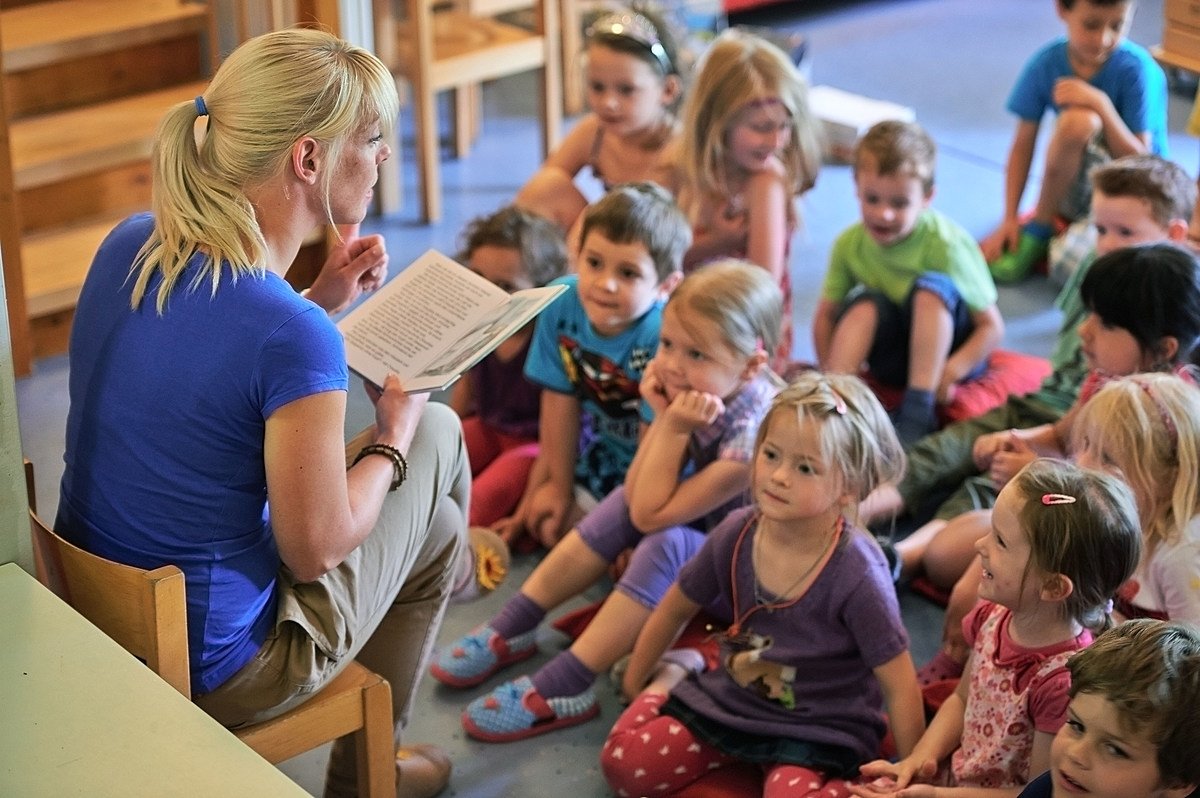Storytelling is a powerful tool that has been used for centuries to captivate and engage audiences. Beyond entertainment, storytelling plays a vital role in the development of communication skills, especially in preschoolers. Preschools recognize the significance of storytelling in early childhood education and incorporate it into their curriculum to enhance language development, imagination and social interaction. In this blog post, we will delve into the power of storytelling and how it contributes to enhancing communication skills in preschoolers.
- Language Development: Storytelling serves as a language-rich environment for preschoolers. As they listen to stories, they are exposed to a wide range of vocabulary, sentence structures and expressive language. By hearing different words and phrases in context, children expand their vocabulary and learn how to use language effectively. Preschoolers are also encouraged to participate in storytelling by retelling stories, expressing their thoughts, and asking questions. This active engagement strengthens their language skills, including listening, speaking and comprehension.
- Imagination and Creativity: Storytelling sparks imagination and creativity in preschoolers. As they listen to stories, their minds transport them to new worlds, characters and scenarios. This imaginative process helps develop their creativity and encourages them to think beyond the boundaries of reality. Additionally, storytelling often involves visual cues, such as illustrations or props, which further stimulate the child’s imagination. Preschools incorporate storytelling activities that allow children to create their own stories, encouraging them to think critically, problem-solve and develop their unique narrative skills.
- Sequencing and Narrative Skills: Storytelling helps preschoolers understand the concept of sequencing events in a logical order. As they listen to stories, they learn about the beginning, middle and end of a narrative. This understanding of narrative structure helps children organize their thoughts and express their ideas coherently. Preschools often engage children in activities that involve retelling stories or creating their own narratives, allowing them to practice sequencing events and developing their storytelling abilities.
- Active Listening and Concentration: Storytelling fosters active listening skills in preschoolers. When children listen to a story, they must pay attention to the details, follow the plot, and understand the characters’ actions and motivations. This active listening requires concentration and focus, essential skills for effective communication. Preschools incorporate various strategies to enhance active listening, such as interactive storytelling sessions, asking questions about the story or encouraging children to predict what might happen next. These activities promote engagement, improve concentration and develop listening skills.
- Emotional Development and Empathy: Stories have the power to evoke emotions and teach preschoolers about empathy. As children listen to stories, they connect with the characters and their experiences. They learn about different emotions, perspectives and moral values. This emotional engagement promotes empathy and understanding, helping children develop social and emotional skills. Preschools often select stories that teach important life lessons, promote kindness and encourage positive values. Through discussions and reflections on the stories, children learn to express their emotions, empathize with others and communicate their feelings effectively.
- Social Interaction and Communication: Storytelling creates opportunities for social interaction and communication among preschoolers. Group storytelling sessions encourage children to listen, take turns and share their thoughts. Preschools often incorporate activities where children collaborate to create stories together, fostering teamwork and cooperation. This collaborative environment promotes communication skills, such as expressing ideas, active listening, turn-taking, and responding to others’ contributions. Through storytelling, children learn to engage in meaningful conversations, ask questions, and develop their conversational skills.
- Cognitive Development: Storytelling engages various cognitive processes in preschoolers. As children listen to stories, they develop their memory and critical thinking skills. They remember story details, recall information, and make connections between different events or characters. This cognitive engagement strengthens their memory retention and enhances their ability to analyze and interpret information. Preschools often incorporate activities that require children to think critically about the story, such as predicting outcomes or problem-solving based on the story’s context. These activities foster cognitive development and support the growth of communication skills.
- Cultural Awareness and Diversity: Storytelling exposes preschoolers to diverse cultures, traditions and perspectives. Through stories from different cultures and backgrounds, children learn about the world around them and develop an appreciation for diversity. They gain insights into different ways of life, beliefs and values, promoting cultural awareness and inclusivity. Preschools intentionally select stories that reflect diverse characters and experiences, allowing children to develop empathy and understanding for people from various backgrounds. This exposure to diverse storytelling enriches their communication skills by broadening their perspectives and encouraging respect for others.
Summary:
Storytelling is a powerful tool that plays a crucial role in enhancing communication skills in preschoolers. Through storytelling, children develop language proficiency, expand their vocabulary and improve listening and speaking skills. It nurtures their imagination, creativity and critical thinking abilities. Storytelling also promotes social interaction, empathy and cultural awareness, laying the foundation for effective communication in diverse settings. Preschools, such as Kiddonia, recognize the importance of storytelling in early childhood education. They incorporate storytelling activities into their curriculum, providing a nurturing and engaging environment where children can develop their communication skills.
At Kiddonia, we understand the significance of storytelling in fostering holistic development in preschoolers. Our experienced teachers utilize storytelling techniques to create immersive learning experiences that enhance language development, imagination, and social skills. We carefully select diverse and age-appropriate stories that stimulate children’s curiosity and inspire their love for storytelling. Through interactive sessions, discussions, and creative activities, we encourage active listening, critical thinking, and effective communication.
We invite you to explore Kiddonia, where we embrace the power of storytelling and provide a supportive and enriching environment for your child’s growth. Our commitment to nurturing communication skills, alongside other essential developmental aspects, ensures that your child receives a well-rounded early education experience.
Join us at Kiddonia, where we celebrate the wonders of storytelling and its transformative impact on preschoolers’ communication skills.

